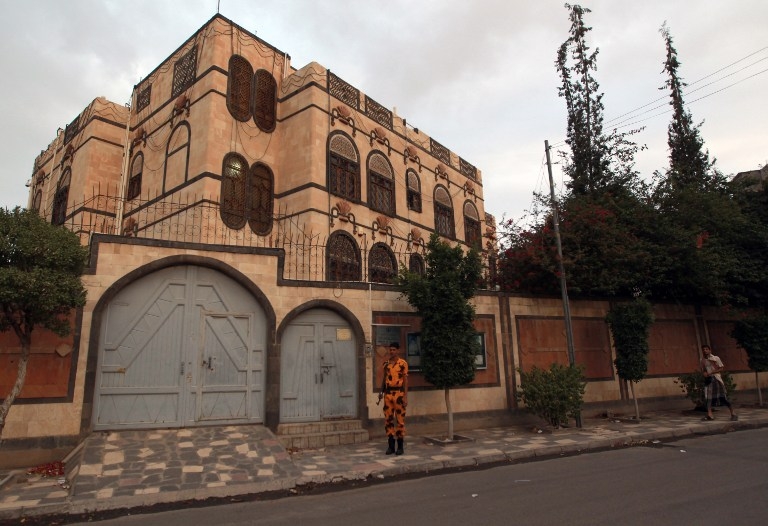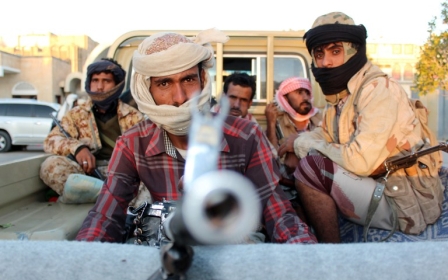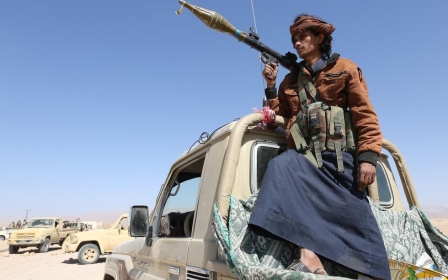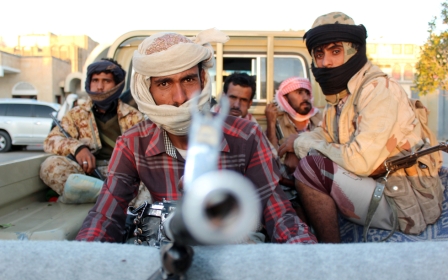Iran accuses Saudi Arabia of bombing embassy in Yemen

Iran on Thursday accused Saudi Arabia of deliberately hitting its embassy in Yemen following air strikes by the Saudi-led coalition targeting Houthi fighters in Sanaa, and promised to take the matter to the UN Security Council.
"During an air raid by Saudi Arabia against Sanaa, a rocket fell near our embassy and unfortunately one of our guards was seriously wounded," Deputy Foreign Minister Hossein Amir Abdollahian said, quoted by official news agency IRNA.
"We will inform the Security Council of the details of this attack within several hours," he said.
"Saudi Arabia is responsible for the security of our diplomats and of our embassy in Sanaa," he added. The Saudi-led coalition has denied the allegations.
The incident comes amid heightened tensions between Tehran and Riyadh over Saudi Arabia's execution of Nimr al-Nimr, a prominent Shia cleric, and the subsequent attack on Saudi Arabia's embassy in the Iranian capital, which led to Saudi Arabia and other states cutting or downgrading diplomatic ties with Iran.
"This deliberate action by Saudi Arabia is a violation of all international conventions that protect diplomatic missions," foreign ministry spokesman Hossein Jaber Ansari was earlier quoted as saying by state television.
Ansari indicated that guards at the embassy had been injured in the incident, according to the state-run IRNA news agency.
"It goes without saying that the Islamic Republic of Iran reserves the right to pursue the issue through legal channels," he said.
IRNA reported that the embassy walls had been damaged by shrapnel from a rocket strike.
However, sources in Yemen told Middle East Eye that there was no visible damage to the compound, which is in an area that has previously been targeted by air strikes.
The coalition also said in a statement that it had conducted an investigation but found that the "the allegations are false and that no operations were carried out around the embassy or near to it".
"It also confirms the embassy building is safe and has not been damaged," the statement added.
A reporter for the Associated Press news agency separately said there was no visible damage to the embassy building.
The Saudi-led coalition has been conducting frequent air strikes against Houthi forces, who have been in control of Sanaa since 2014, as part of its campaign to reassert Yemeni President Abd Rabbuh Mansour Hadi's control of the country.
Heaviest bombardment
The Reuters news agency reported that Sanaa had been pounded by dozens of air strikes on Thursday in what it said residents described as the heaviest bombardment in the Saudi-led nine-month military campaign.
A spokesperson for the coalition said it would investigate Iran's accusation but said that allegations made on the basis of information provided by the Houthis "have no credibility".
Brigadier General Ahmed Asseri said the coalition had requested all countries to supply it with coordinates of the location of their diplomatic missions.
Asseri said overnight strikes had targeted missile launchers used by Houthi fighters and accused them of using civilian facilities including abandoned embassies.
Qatar on Thursday recalled its ambassador from Tehran, becoming the latest Gulf state to reduce its diplomatic presence there in response to the arson attack by protesters on the Saudi embassy on Saturday.
Bahrain and Sudan followed Saudi Arabia in cutting diplomatic ties, while the United Arab Emirates and Kuwait withdrew their ambassadors.
Iran said on Thursday it had banned all products from Saudi Arabia from entering the country.
Despite months of air strikes and a ground campaign by the Saudi-led coalition, the Iranian-allied Houthis remain in control of Sanaa and other areas of the country.
But on Wednesday troops loyal to Hadi took control of the strategic port city of Midi on Yemen's northwestern Red Sea coast, according to a local military commander.
The next round of United Nations-backed peace talks is due to start on 14 January, although neither side has yet confirmed their attendance.
In other news, Yemen plans to expel the country's leading UN human rights official, George Abu al-Zulof, in a decision described by the UN as "an extremely regrettable development".
The decision came just days after the United Nations raised alarm over the use of cluster bombs by the Saudi-led coalition backing Yemen's government in its war against the Huthi rebels.
Middle East Eye propose une couverture et une analyse indépendantes et incomparables du Moyen-Orient, de l’Afrique du Nord et d’autres régions du monde. Pour en savoir plus sur la reprise de ce contenu et les frais qui s’appliquent, veuillez remplir ce formulaire [en anglais]. Pour en savoir plus sur MEE, cliquez ici [en anglais].




